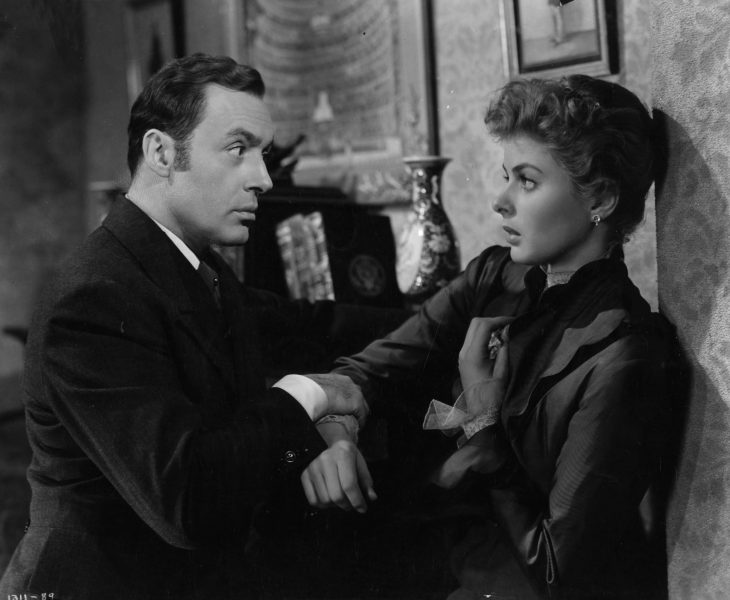Last month, the American short story writer Carmen Maria Machado spoke out about a disappointing interaction she had once had with the author Junot Diaz. She took Diaz to task regarding his male protagonists’ relationships with women, and was met with a ‘a blast of misogynist rage’. Diaz ‘went off’ at her ‘for twenty minutes’, ‘raised his voice’, ‘became enraged’ and ‘slid into bullying and misogyny’. An audio recording of the Q&A subsequently emerged online which appeared to contradict her account: Diaz, it seems, had been robust but courteous. Last week, Machado published a series of tweets complaining that social media users’ comments about the recording made her feel ‘gaslit and insane’. She lamented the fact that these comments prompted her to briefly doubt her own recollection of events: ‘That’s the power of gaslighting, I guess.’
What is ‘gaslighting’? The term originates in Patrick Hamilton’s 1938 play Gas Light, about a man who deliberately tries to convince his wife that she is losing her mind. It denotes the practice of seeking to make someone doubt their perception of objective reality in order to psychologically manipulate them. From the outset its meaning was synonymous with gendered abuse, and the term is often used to describe situations in which the testimony of a domestic violence or sexual abuse complainant is being dishonestly called into question in order to undermine their resolve. It is a very specific term for a very specific thing.
Increasingly, however, the term’s usage – particularly on social media – appears to have expanded to encompass pretty much any situation in which two people are in disagreement over the interpretation of a given set of facts. This elasticity is sustained by the fact that, technically speaking, more or less any difference of opinion might legitimately be framed as a dispute over objective reality. But the dishonest and manipulative intent is crucial, and without it the term loses all meaning. Is it fair to say, of the social media users who highlighted the apparent disparity between Machado’s account and the recorded conversation, that they were manifestly acting in bad faith, and seeking to either drive her insane or otherwise destabilise her grip on reality?
Machado is by no means alone in deploying the term in this loose way. Run a Twitter search for ‘gaslighting’ and you will see that everyone is busily at it. We might characterise the contemporary iteration of the term as merely a psychologised, left-leaning upgrade on the familiar Donald Trump refrain of ‘Fake News!’ – a lazy but effective way of shutting down dissent and disagreement. But it has certain strategic advantages over and above merely calling bullshit. Accusing someone of gaslighting is more powerful than just calling them a liar, because it imputes a presumption of malevolent motives and bad faith amounting to a pathology – to wit, the person isn’t just disagreeing with you but actively trying to mess with your mind, because they are sick and twisted – which they must somehow rebut, but not too robustly of course.
In this respect it functions a bit like a playground insult, a label intended to shame the other person into submission. The fact that this necessarily involves weaponising the stigma of mental ill health is deeply ironic: the practice of belittling someone by accusing them of being mentally unwell has traditionally been a go-to of rightwing anti-feminists; here it is repurposed in the service of a progressive cause. Regardless of where you reside on the political spectrum, it’s a distasteful thing to do. There is, moreover, something more than a little bit cynical about exploiting the term’s significant emotive capital in order to win an argument. As a rhetorical strategy it’s not a million miles from the kind of manipulative behaviour it purports to call out.
Our society is making great strides towards becoming more open about, and sensitive to, mental health issues. Despite this increased awareness – or possibly because of it – it seems increasingly acceptable to casually co-opt the psychiatric lexicon in order to salve whatever gripe one happens to be nursing. This is in part a consequence of the boom in popular psychology literature for which Jon Ronson’s The Psychopath Test (2011) remains the avatar. Today everyone is an expert in diagnosing pathologies of one kind or another. Your go-getting boss is a sociopath, the last lover who spurned you was a narcissist, and so on. Hopefully this bizarre fad for compulsively medicalising everyday human obnoxiousness will, in time, be recognised as a boring cliché, and seen for what it really is: a form of pretentious diction that delivers an easy rhetorical dividend, but ultimately reveals more about the speaker than their intended target. I hope so. Or maybe I don’t, really. Maybe I’m just messing with your head.
Houman Barekat is a book critic and founding editor of Review 31






Comments